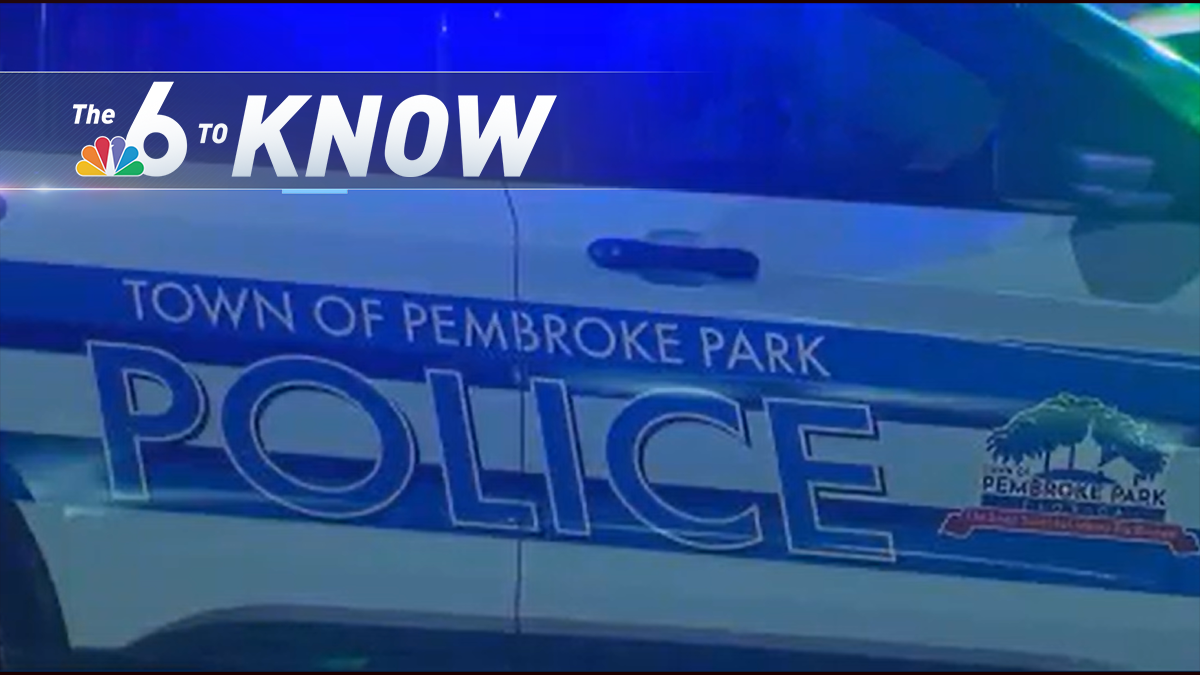After his parents took to Instagram to ask the community for help amid a health crisis, a South Florida child has received a kidney from a complete stranger.
A South Florida toddler has been in the fight for his life. John Paul Medina and Jessica Ortiz’s 3-year-old son, JP, went viral for his parents’ plea for a new kidney back in February.
JP was born with a disease keeping his kidneys from processing toxins. So, he needed a new one.
Watch NBC6 free wherever you are
NBC6 spoke exclusively to JP’s parents, as their wish finally came true. All thanks to one woman, JP has a new kidney.
“She changed the lives of many people that day,” JP’s father, said.
Get local news you need to know to start your day with NBC 6's News Headlines newsletter.
His family is still thinking about that day, when a stranger answered the call that would save JP’s life.
Lauris Palacio signed the dotted line, agreeing to be JP’s kidney donor.
“I’m ready!” Palacio said before going into the surgery on June 16.
Local
“She was extremely excited that she was a match. … One of the bravest and strongest women that I have met to this day,” Medina said.
Doctors say this was a quick turnaround for JP, considering the circumstances. The Miami Transplant Institute at Jackson Memorial Hospital confirmed the average wait time for pediatric recipients of deceased kidney donors in the United States is 2-3 years. Adults and overall patients wait for 3.5-4 years on average.
Meanwhile, the average wait time for pediatric patients of a living kidney donor is approximately 3 months, depending on the program. Doctors at Nicklaus Children’s Hospital, where JP received some of his care, said living donors are typically family members or friends, which significantly decreases the wait time, but not everyone is so lucky.
Before Palacio stepped up for JP, his family went back and forth between the hospital and their Miami home, hoping for a match.
“I was worried every second. … It was stressful,” Ortiz, JP’s mother said while reflecting on the moments after JP’s birth. “There were more complications than I was aware of before.”
Ortiz didn’t know why didn’t know why doctors took her baby away in an incubator.
“It was a waiting game,” Medina said.
While JP was in utero, doctors diagnosed him with Obstructive Uropathy, which occurs when toxins, like urine, can’t be drained, blocking the kidneys. This condition caused JP to develop End Stage Renal Disease, sending him to the NICU for 7 months because his kidneys were not able to function at a level needed for day-to-day life. He would also need 12 hours of dialysis each night.
“If you can think about it, it’s a plumbing problem,” Dr. Nicole Christian, one of JP’s doctors at Nicklaus Children’s Hospital, said. “His kidneys couldn’t properly drain. And ultimately resulted in his kidneys failing at birth. So, they’re unable to properly clean the blood.”
Medina said seeing his baby boy like this was the hardest part of the journey. “His body began to kind of like poison itself.”
Those months of intensive care visits would quickly turn into years of crossed fingers and false hope, as Medina said it was a tough fight to find a living donor match.
Medina said a living donor gives a better shelf life for kidneys because they decrease the chances of a rejected transplant. “The odds change. This could potentially be a lifetime kidney for (JP).”
Across the nation, around 15% of deceased kidney donations are rejected by the recipient within the first 6 months after transplant, according to the Miami Transplant Institute.
Medina said JP’s journey has been far from short and painless. Fortunately, doctors found a match for JP with a deceased donor in September 2022, but that was unfortunately the same time JP fell ill, contracting COVID-19. So, the doctors said it was back to the drawing board.
“That’s what kind of made me really lose hope. I was, like, ‘Ugh. This is going to be a lot tougher than I thought,’” Medina said.
Despite the setback, Medina, a computer programmer, used his digital marketing skills to create the Living Donor Project, a nonprofit geared toward getting kids and people like JP to get the care they need.
The project, which launched in January 2023, proved to be a success. In less than 2 months, Medina said over 460 people pledged they would donate their kidney to his son.
“JP is just the first person, the first child we’re helping. … (They) need our help,” Medina said.
Turns out, the night before JP’s surgery, the doctors found a match with another deceased donor, but JP was already covered, all because of Palacio’s promise to be JP’s lifeline.
"She potentially saved two lives that day,” Medina said. “She changed the lives of our family. … She changed the lives of those families that are part of the other recipient that received the kidney."
From January 2022 through the end of June 2023, there have been 70 pediatric kidney transplants performed throughout the state of Florida, according to the Organ Procurement and Transplantation Network.
If you want to find out if you’re an eligible donor, click here.
But now, “(for) JP, I want him to know that he wasn’t just dealt bad luck,” Medina said, illuminating his pride in his son’s fight.
“He pulled himself up on the bed and said, ‘Da da. Walk.’ He just wanted to walk. And he has a hard time walking as is, you know,” Medina said after the successful surgery. “That says a lot about his character. Strength and how strong he is, and how he has overcome so many different things.”
JP’s strength leads his walk toward a long and happy childhood.
“I want everyone to know that they can make a difference. They can impact so many people’s lives and give a child like JP the opportunity to grow up and be a child,” Medina said, pushing for everyone in the South Florida community to get involved however they can to save a life. “I hope we can make that difference together.”



